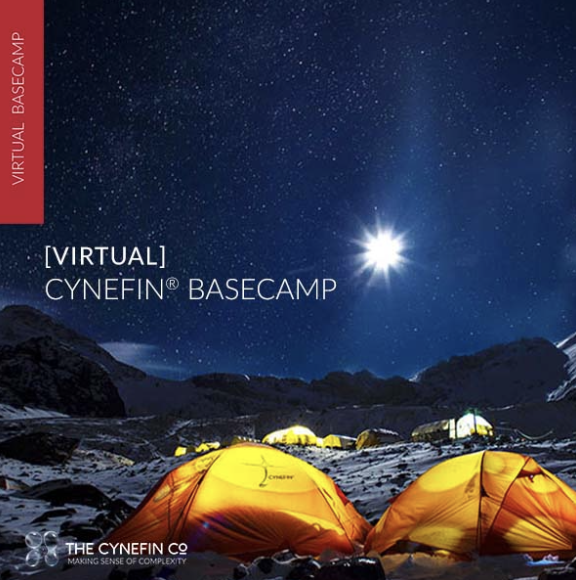Professor Dave Snowden | Making Sense of Complexity
Podcast
Intro
Hello, Professor Dave Snowden. We are very lucky to have you with us here at Mayflower. We are fascinated by you and your work. To be honest, we are still trying to figure out exactly what that is. We have done our research though. We would like to introduce ourselves as the MadeInMayflowerMedia Team. We look forward to learning lots from you. Let's go!
Q1
Hi Professor Dave, it is great to meet you today. We were wondering about how you created a company like CYNEFIN, and what have you achieved so far and have plans to achieve in the future?
Q2
With your cynefin theory - you talk about how we are influenced by the spaces that we find ourselves in - even if we don't realise it. Could you explain more about this theory of yours please and give examples of what this might look like to an 11 year - like us? We wonder if AI will help us to make decisions and make sense - in the future?
Q3
We have found out that you focus on complex science, and you draw on anthropology, neuroscience and complex adaptive systems - and I would like to know what this means as well as why and how you do that?
Q4
We know that you are the Founder and Chief Scientific Officer of Cognitive Edge, so the thing I want to know is how you do it, and why did you start this work?
Q5
I love art my grandad tought me when i was younger. Did anyone encourage you to be interested in Science at a young age? Who are your main role models in life and what have they taught you?
Q6
We heard that you won an award - what award is this and what did you do to achieve it?
Q7
How long have you been working in the world of Science your and do you enjoy it as much as you did when you were younger? What type of work do you think you will be doing in 10 years time?
Q8
If you could go back in time, would you change what you are doing right now and what advice would you give to your younger self. We wonder if science could one day make us make different decisions about what we do with our time.
Q9
We are thinking about how your work can help us in school as we grow up. We think that you know a lot about the process of sense making. What tips have you got for us when we are trying to make sense of things around us?
Q9
Outro:
Thank you for being here. We've loved you being here with us, and it's been amazing to talk to you today. What have you enjoyed about this podcast, anything cool mine was question 8 but what did you like? We will stop here and remember, 'Together we can...'

Cynefin®, pronounced kuh-nev-in, is a Welsh word with no direct equivalent in English, but the framework bearing the name has been used to support decision making for contexts ranging from agile software development to policing (e.g. with the Occupy Movement protests which swept across the United States in late 2011).[1] This wiki introduces the framework, and ways of using it. Start here.
Education
Our education programme is still a fledgeling in its structured form. Still, it draws from years of experience and multiple countries and institutions applying SenseMaker to learning, students, and life in educational institutions and it is growing through application and experience.
The consideration of everything the label of “education” could encompass is never-ending. It contains two areas of particular and immediate interest to us at the Centre: the process of learning and research on the one hand, and the connection with younger people and their capacities as they are growing and changing on the other. We see education as integrated into all aspects of society, not as a world apart.
Projects in this area can and have run the gamut, from schoolchildren to the ivory tower of academia. In its current iteration, the Cynefin Centre education programme works with institutions from universities to primary schools and national organisations, as well as individual researchers. It is active in making students an active part of their university’s operation, understanding their experience, and putting as many tools as possible into their hands. It is also trying to target key concerns such as anti-racism in academic institutions or the relationships between schools and communities. This programme is still in a growth stage and welcomes projects in new areas of potentially more general applicability.
